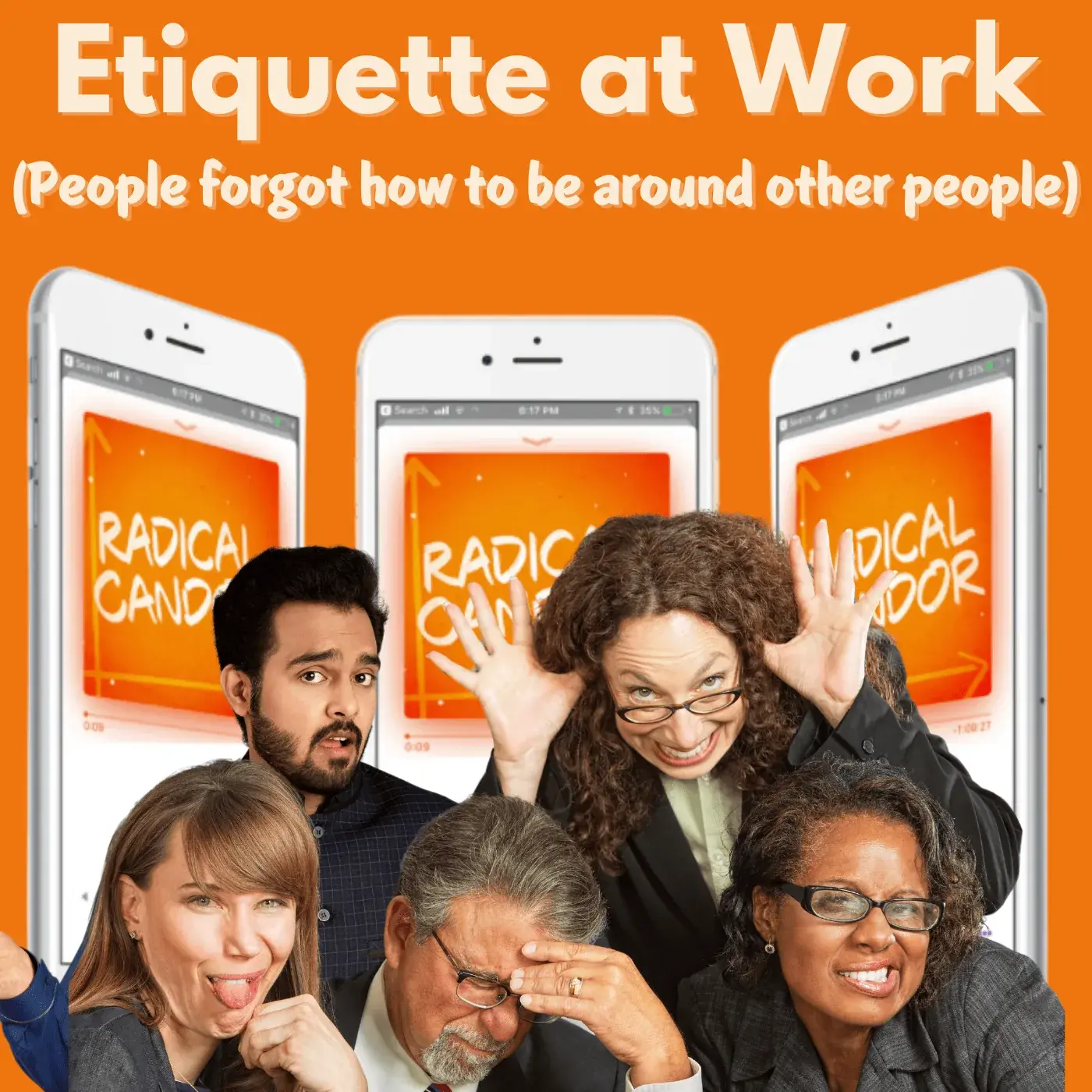Etiquette at Work (People Forgot How to People) 6 | 9
Sixty percent of employers will reportedly send employees to “office etiquette” training in 2024. Whether it’s folks returning to the office after...
3 min read
Brandi Neal Nov 16, 2020 1:00:19 AM

How can you get your employees more engaged at work if they're not invested in the company long term, and is it your obligation to be Radically Candid with a peer at work who you know is lying? On this episode of the Radical Candor podcast, Amy and Jason answer listener questions, discuss their stints working in food service (their experiences involve mayonnaise and organized crime) and muse whether or not people can be more like Clay Christensen.
Listen to the episode:
Our first question on this episode of the Radical Candor podcast comes from a listener who manages a restaurant. "I work at a well-established restaurant in San Francisco. I manage a team of about 20 people. Being in the restaurant industry, I feel like there is a lack of commitment to the company for the employees. There are also a few different BIG personalities that sometimes clash. I am struggling with making my team care more and figuring out how to navigate through the challenges of getting a team to communicate and work together in such a high-stress and fast-paced environment."
Our second question season 2, episode 15 of the Radical Candor podcast comes from someone experiencing a moral dilemma. "I am in a situation with a colleague who is severely underperforming and has been for at least a year. He has recently begun to lie about his work to others while in a group setting. Other people believe him, while I know he is blatantly lying. Is this something you would still consider being radically candid about? We are peers who report to the same manager."
 The late author, innovator and HBS professor Clay Christensen with Radical Candor's own Amy Sandler
The late author, innovator and HBS professor Clay Christensen with Radical Candor's own Amy Sandler
Many of us have convinced ourselves that we are able to break our own personal rules 'just this once.' In our minds, we can justify these small choices. None of those things, when they first happen, feels like a life-changing decision. The marginal costs are almost always low. But each of those decisions can roll up into a much bigger picture, turning you into the kind of person you never wanted to be.
If you give in to 'just this once,' based on a marginal-cost analysis, you'll regret where you end up. That's the lesson I learned: it's easier to hold to your principles 100 percent of the time than it is to hold to them 98% of the time. The boundary—your personal moral line—is powerful because you don't cross it; if you have justified doing it once, there's nothing to stop you doing it again.
Decide what you stand for. And then stand for it all the time." ― Clayton M. Christensen, How Will You Measure Your Life?
Improvising Radical Candor, a partnership between Radical Candor and Second City Works, introduces The Feedback Loop (think Groundhog Day meets The Office), a 5-episode workplace comedy series starring David Alan Grier that brings to life Radical Candor’s simple framework for navigating candid conversations.
You’ll get an hour of hilarious content about a team whose feedback fails are costing them business; improv-inspired exercises to teach everyone the skills they need to work better together; and after-episode action plans you can put into practice immediately.
We’re offering Radical Candor podcast listeners 10% off the self-paced e-course. Follow this link and enter the promo code FEEDBACK at checkout.
The Radical Candor Podcast theme music was composed by Cliff Goldmacher. Order his book: The Reason For The Rhymes: Mastering the Seven Essential Skills of Innovation by Learning to Write Songs.

Sixty percent of employers will reportedly send employees to “office etiquette” training in 2024. Whether it’s folks returning to the office after...

Does anyone actually want to be a manager of managers? And if so, what do these people actually do? On this episode of the Radical Candor podcast...

The purpose of feedback is to help people find more success, so it’s bananas to think it’s only the manager’s job to give feedback. It’s everyone’s...